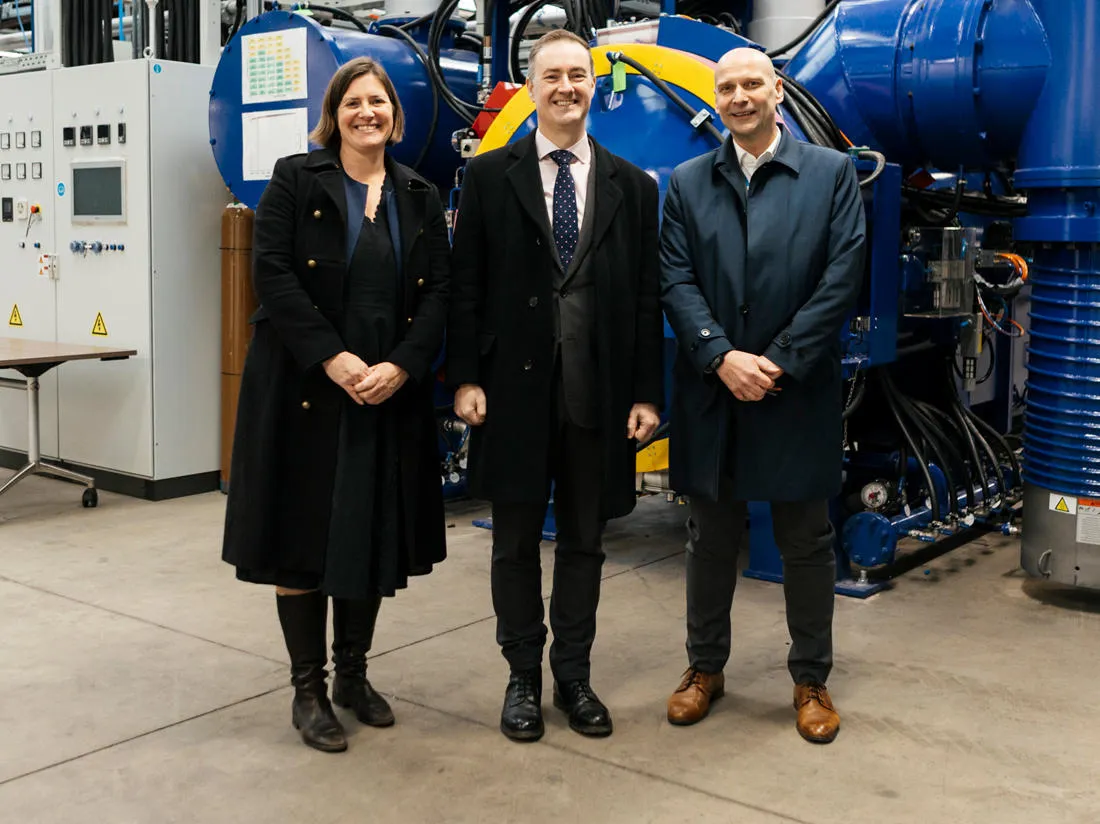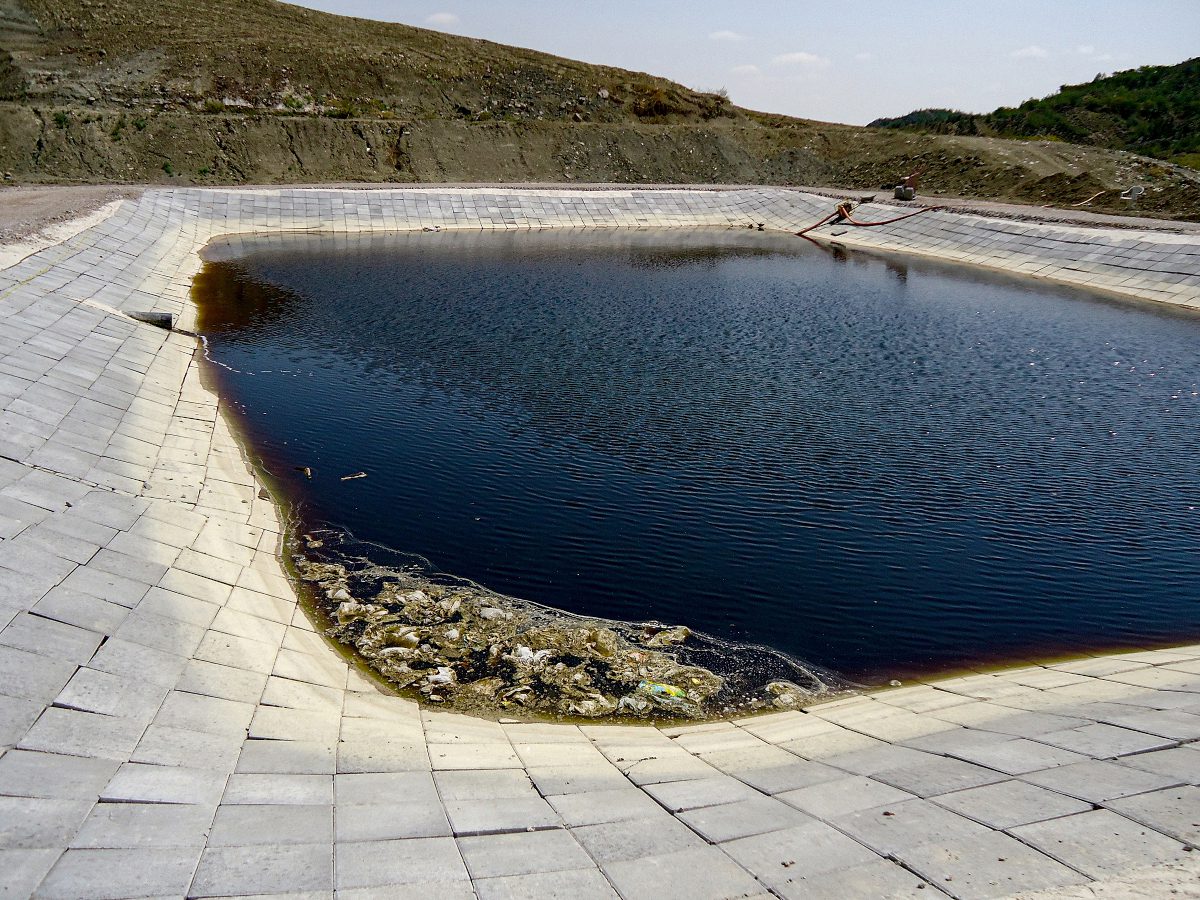Government must ensure that tech companies accurately report how much energy and water their data centres are using, according to a report published on 7 February by the National Engineering Policy Centre. Data centres can and should be designed to use less water and critical raw materials, but government must set the conditions for this as the AI Opportunities Action Plan is rolled out.
The report, Engineering Responsible AI: foundations for environmentally sustainable AI, was developed by the Royal Academy of Engineering in partnership with the Institution of Engineering and Technology and BCS, the Chartered Institute of IT, under the National Engineering Policy Centre (NEPC).
The AI Opportunities Action Plan, recently endorsed by the UK government, aims to support the growth and responsible adoption of artificial intelligence to help “boost economic growth, provide jobs for the future and improve people’s everyday lives”. AI is already benefitting society by accelerating drug discovery, creating early warning weather systems and optimising energy consumption.
However, the proliferation of AI comes with heightened environmental risk. Data centres and the AI systems they host consume significant amounts of energy and water. Rapidly growing demand could have far-reaching effects, such as competition for renewable energy or drinking water sources. Both Google and Microsoft have reported year-on-year increases in data centre water consumption since 2020 and many of these water withdrawals come from sources of drinking water.
With government intending to reform the planning system to build new infrastructures like data centres, policies to manage the environmental risks they pose are urgently needed, says the report. Reliable data is not currently available on how much resources these infrastructures consume – this impacts policymakers’ ability to understand and respond to environmental risks. While data centres can be designed to use less energy, drinking water and critical materials, doing so effectively and at scale requires access to resource use data. Data on resource use can also be used to assess the economic and social impacts of new infrastructures.
Five steps to environmentally sustainable AI
The Engineering Responsible AI report calls on government to promote, prioritise and invest in sustainable AI and proposes five foundational steps that can be taken now to help establish the UK as a global leader in efficiency and frugality:
- Expanding environmental reporting mandates
- Providing information on environmental impacts of AI systems across the value chain, including AI compute, IT infrastructure, data and algorithms, interaction and use.
- Setting environmental sustainability requirements for data centres
- Reconsidering data collection, transmission, storage, and management practices
- Leading the way with government investment
Mandatory environmental reporting on energy consumption and sources, water consumption, withdrawal and sources, carbon emissions and e-waste recycling by data centres should lead to a better understanding of the scale of environmental impacts.
Communicating about the environmental impacts of AI is essential, to encourage developers and users to deploy appropriate AI tools for a task and to consider using smaller datasets. To embed best practice, the report recommends adding environmental design and sustainability to computer science and AI lessons in schools and colleges.
The report also calls for environmental sustainability requirements for all data centres, including reducing the use of drinking water, moving to zero use for cooling. In terms of energy use, it recommends recovering waste heat, reusing energy and matching energy used with 100% carbon free energy certificates. Examples of waste heat recovery include Queen Mary University in London where excess heat from their data centre warms the campus and provides hot water.(2)
Data collection, storage, transmission and management should be reconsidered, says the report, in terms of the financial and environmental impacts of keeping data for long periods of time. It also considers the need to revise legislation mandating data retention, and how a National Data Library could help to drive good practice.
Finally, the report discusses how the UK government’s implementation of the AI Opportunities Action Plan could provide an opportunity to embed sustainability as a key criterion for policy, procurement and funding decisions.
Professor Tom Rodden CBE FREng FRS FBCS, Pro-Vice-Chancellor of Research & Knowledge Exchange and Professor of Computing, University of Nottingham and Chair of the working group says:
“In recent years advances in AI systems and services has largely been driven by a race for size scale, demanding increasing amounts of computational power. As a result, AI systems and services are growing at a rate unparalleled by other high energy systems – and generally without much regard for resource efficiency. This is a dangerous trend, and we face a real risk that our development, deployment and use of AI could do irreparable damage to the environment.”
“To build systems and services that effectively use resource, we first need to effectively monitor their environmental cost. Once we have access to trustworthy data pertaining to their environmental impacts, and a sense for where these services and systems are needed, we can begin to effectively target efficiency in development, deployment, and use – and plan a sustainable AI future for the UK.”
Dame Dawn Childs DBE FREng FICE FIMechE FRAeS, CEO of Pure Data Centres Group says:
“Engineering has a vital role in making AI more efficient and, in turn, more environmentally sustainable. Some of this will come from improvements to AI models and hardware, making them less energy intensive. But we must also ensure that the data centres housing AI’s computing power and storage are as sustainable as possible. That means prioritising renewable energy, minimising water use, and reducing carbon emissions—both directly and indirectly. Using low-carbon building materials is also essential.”
“Achieving this requires joined up thinking from the outset, particularly at the planning stage. As the UK government accelerates AI adoption—through AI Growth Zones and streamlined planning for data centres—sustainability must be a priority at every step.”
Alex Bardell FBCS, Founder of SDAdvocate and Chair of BCS’ Green IT Specialist Group says:
“At the British Computer Society, we advocate the importance of achieving more with limited resources. Evidence shows that even when skilled AI developers have restricted access to computational resources, they can still create effective models.”
“Our report has discussed optimising models for efficiency. Previous attempts to limit the drive toward increased computational power and larger models have faced significant resistance, with concerns that the UK may fall behind in the AI arena; this may not necessarily be true. It is crucial to reevaluate our approach to developing sustainable AI in the future.”
Professor Sarvapali (Gopal) Ramchurn FIET, Professor of Artificial Intelligence, University of Southampton, CEO of Responsible AI UK and Fellow of the IET says:
“AI’s use has surged in the past two years, aiding daily tasks and boosting productivity and innovation. However, many are unaware of the significant costs and environmental impacts – recent IET research has shown that less than one in six people in the UK are aware of this.” (3)
“AI providers must be transparent about these effects. If we cannot measure it, we cannot manage it, nor ensure benefits for all. This report’s recommendations will aid national discussions on the sustainability of AI systems and the trade-offs involved.”
Read the full report
















